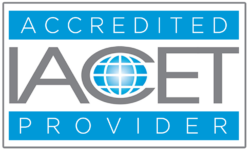Can you remember a time when you worked with a team of people and you were excited about the work you completed? You probably recognized that the group accentuated each person’s individual talents to create a high-performing team. As a group member you recognized that you gained energy and knowledge from those you were working with and you found yourself looking forward to the opportunity to work with one another again. Working with groups like this can be truly rewarding, both personally and professionally, even when the work load is unbearable and the challenges are difficult.
Creating an environment where group-think can be truly generative does not come easily but it can be done. Skilled educators can create working environments that allow participants to tackle challenging tasks at a rigorous pace with maximum outcomes. But it takes commitment and fortitude for the team to hold the demands of task completion at bay long enough to build the norms of collaboration, which are the foundation to the group’s operational procedures. This is called, “going slow to go fast.”
Here are three things high-performing groups do to be sure they are going slow to go fast:
Establish Working Agreements
Successful groups set the operational ground rules the very first time they sit to down together. At the onset, meeting time is set aside to identify the rules by which the team will live. It is the group that establishes these working agreements, not the group leader. Together, the participants decide what is important for their individual and collaborative success. Time is dedicated to ensuring consensus about each item on the list. All group members are committed to operating within the working agreements and to holding one another accountable in professional ways when they stray from the working agreements.
Conduct Organized Meetings
Meetings that follow routine processes and procedures create an intellectually safe environment which allows participants to focus their energy on the content at hand. Well organized meetings have a clearly articulated purpose. Each participant understands the reason for the meeting. Outcomes are established which clarify for the group what they are to collectively accomplish. Agendas detailing meeting outcomes and general topics are distributed prior to the meeting, providing participants with the opportunity to prepare prior to the meeting in order to maximize their time together. Utilizing a predictable approach to meeting organization allows groups to keep their eye on the prize, create new understanding around meeting outcomes and produce phenomenal results.
Clarification of Roles
High-performing groups have a clear understanding of the individual roles of each member of the team and team members have the ability to move between roles as demanded by meeting activities and member expertise. Shared leadership is valued as group members shift as necessary between the roles of presenter, facilitator, coach and consultant. Each member of the team is acutely aware of the needs of the group, the meeting, the organization and their own abilities to help meet these needs.
We all know that feeling we get when we have just worked our tails off and participated in something grand. When we know, as exhausted as we are, that the adrenalin rush of working with a high-performing team exceeds the exhaustion. Generative groups have high levels of trust and it is “going slow to go fast,” which allows this trust to grow and the group to thrive.


